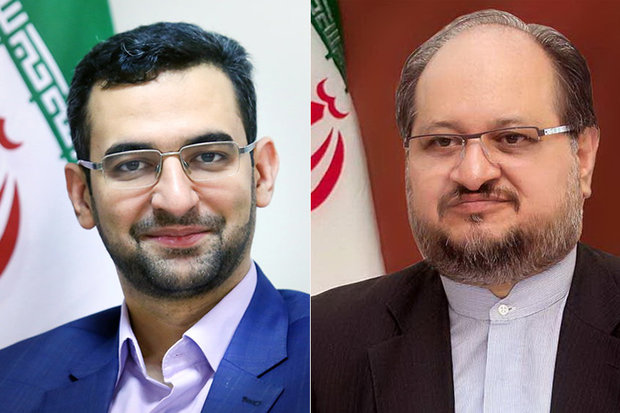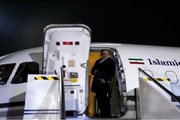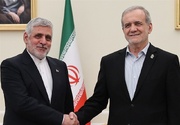The minister also said of the 220 million euros that these companies had received only 75 million euros had gone into the purchase of mobile phones.
Also, a few weeks later, after it was confirmed that violations had taken place in import of cars, President Rouhani tasked Industry and Commerce Minister Mohammad Shariatmadari with reporting the issue to the “people and the judiciary”.
In the letter to the president, Shariatmadari confirmed that some managers in his ministry had been involved in “illegal” registration of 6,481 cars by certain companies and individuals.
And finally, on Monday, July 24, Shariatmadari, in a TV program, revealed the names of 100 companies and individuals who illegally ordered importation of cars.
According to reports, violation had taken place in the years 1395 (March 2016-March 2017) and 1396 (March 2017-March 2018), before Shariatmadari took over as minister.
There are many legal loopholes that provide the ground for corruption and it is not coincidental that Iran is among the list of countries rife with corruption.
In remarks in December 2017, Rouhani said, “there is no solution other than transparency in uprooting corruption." He also said, “we all should be in the glass room so that people observe all our actions.”
Writing an article in the Hamshahri newspaper on July 17, Hossein Mir-Mohammad Sadeqi, a senior law expert, said, “we do not have transparency at all in the process of decision making in ministries, municipalities, customs, tax offices… and the decisions are actually taken behind closed doors.”
The law expert said since these decisions are taken by what he calls “golden” elements and nobody is aware of the details, or sources of money and where they are spent, it creates the ground for “spread of corruption” in the country.
Before the recent price shocks, which some experts link mostly to high liquidity rather than the return of sanctions, Rouhani had asked the economy minister to publish the sum of money that each state body receives monthly.
Now the people are waiting to see whether the president and his ministers are taking such steps because of the public dissatisfaction over price rises, which have resulted from the sudden devaluation of the national currency against foreign currencies, or that the government is really bent on fighting corruption.
In his first four-year term, President Rouhani was heavily and truly involved in the delicate and laborious nuclear negotiations and partly resolved the problems left from the Ahmadinejad administration. However, in his second term there is no excuse not to launch a campaign against corruption. It is extremely expected that his administration would not limit fight against corruption to just these few cases which were revealed recently.
Now that the Trump administration has unilaterally and illegally pulled out of the 2015 nuclear agreement and is putting pressure on other countries to cut economic ties with Iran, one of the best tools to win the public support to counter sanctions is to fight corruption and show transparency. In that environment the people would be more convinced to resist forcefully against the bully by Trump and tolerate the consequences of the illegal sanctions.
If the president shows serious will in setting the stage for transparency, the next administrations will be forced to follow this path and even strengthen it. In that situation, transparency can turn into a public demand and a campaign slogan by presidential and parliamentary candidates.
Though fight against corruption entails necessary tools and legislations, Rouhani, in the remaining years of his administration, can be the flag-bearer of a movement against corruption.
The government can start from small steps. For example, it will be a good start if the president and his ministers, provincial governors and other top managers release the list of their monthly salary. If this happens then people may demand parliamentarians disclose the figures on their paychecks. People will also demand MPs approve legislations to remove loopholes leading to corruption.
It is proven that transparency and fair competition is the bedrock for progress and its concrete examples are Japan, Germany, South Korea and Scandinavian states.
One can only hope that the campaign that the Rouhani government has started against corruption would continue unabatedly.
MNA/TT

























Your Comment